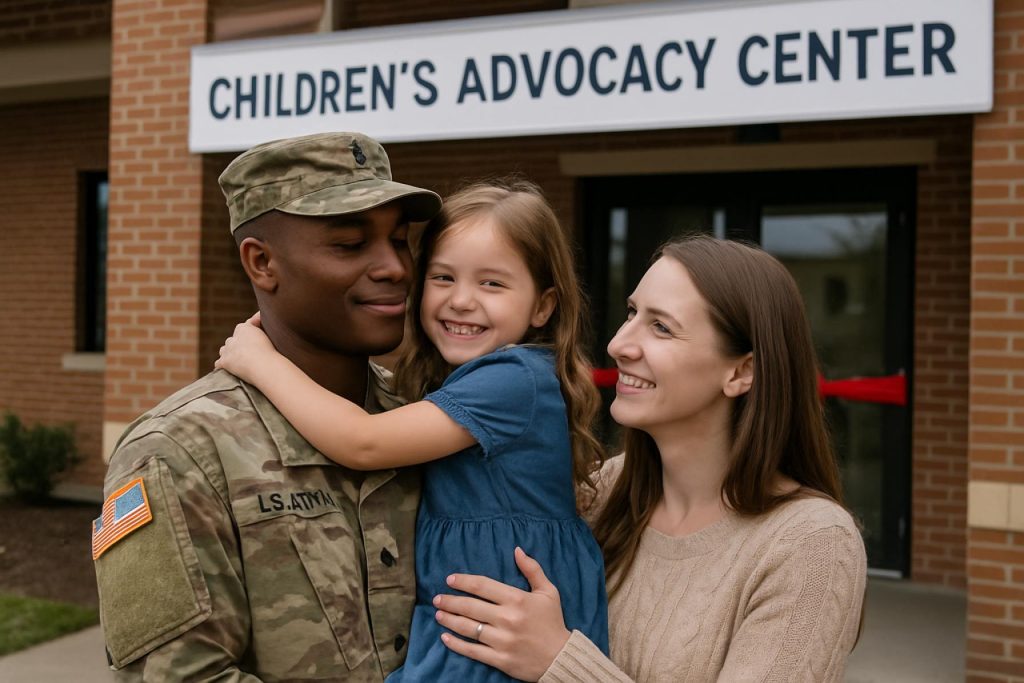
Historic Milestone: First-Ever Children’s Advocacy Center Launches Inside Fort Cavazos, Transforming Support for Military Families
The groundbreaking Children’s Advocacy Center at Fort Cavazos marks a new era in trauma care, safety, and mental health for military children.
- First CAC on a U.S. military base
- 10,000+ children and families served by CACCT since 1997
- Forensic interviews and trauma therapy now available on base
The Children’s Advocacy Center of Central Texas (CACCT) achieved a historic first on June 5, 2025, by opening the nation’s inaugural satellite Children’s Advocacy Center (CAC) on a U.S. military installation—Fort Cavazos.
The move represents a seismic shift in support services for military families, providing specialized trauma care and forensic expertise right where families live and serve.
Military bases have long been sanctuaries of security and readiness, but now Fort Cavazos is blazing a trail by placing the well-being of its youngest and most vulnerable residents front and center.
What Makes This Advocacy Center Different?
Unlike any previous support initiative, this new satellite center brings together a multidisciplinary team—from law enforcement and child protection to mental health, medical, and legal professionals—all under one roof.
Gone are the days when military families had to travel miles off-post to seek critical therapy or legal guidance for children affected by trauma. Now, forensic interviews are conducted in a child-friendly, neutral setting, fundamentally improving the process of gathering evidence and supporting healing.
How Does the Advocacy Center Support Military Families?
Families on the installation now have immediate access to:
– Forensic interviewing using evidence-based techniques geared for children.
– On-site family advocacy providing personalized resources, recovery assistance, and navigation services.
– Mental health therapy for both children and adults, fostering holistic healing.
– Partnerships with the U.S. Army Criminal Investigation Division and the Office of Special Trial Counsel, setting a new gold standard in community collaboration.
CACCT’s executive director, Debra Longley, emphasized that this center ensures children and families are supported—allowing service members to focus on their crucial military duties with greater peace of mind.
Why Is This Partnership So Groundbreaking?
This collaboration began in April 2023 and has grown to involve multiple military and civilian agencies. It not only strengthens prosecutions within the Uniform Code of Military Justice but also removes barriers for military families to seek lifesaving therapy and resources.
The result? A stronger, safer, and more resilient community at Fort Cavazos, with a model that could soon inspire other bases nationwide.
Related resources for families and professionals:
– U.S. Army
– Child Welfare Information Gateway
– National Institute of Mental Health
Q: Who can use the new Children’s Advocacy Center at Fort Cavazos?
Any military family and child on the installation can access the services, ensuring easy, local support for those affected by abuse or trauma.
How to Access Support Services at the New Center
1. Contact the CACCT office on Fort Cavazos for intake.
2. Schedule a forensic interview or counseling session.
3. Work with family advocates to connect to additional resources.
How Will This Impact Military Readiness?
By bolstering family wellness, the CACCT strengthens overall troop readiness and unit focus—vital for national defense priorities.
Will Other Military Installations Follow?
Fort Cavazos sets a high bar. Stakeholders hope this “Cavazos way” becomes standard Army-wide, shaping how bases nationwide protect and serve their communities.
Don’t wait to seek support—military families now have a powerful ally on their side at Fort Cavazos! Spread the word, and help others find help and hope.
Actionable Checklist:
- Know the location of the new Children’s Advocacy Center on base
- Share CACCT resources with military families in need
- Encourage access to on-base mental health services
- Advocate for similar centers at other military installations



